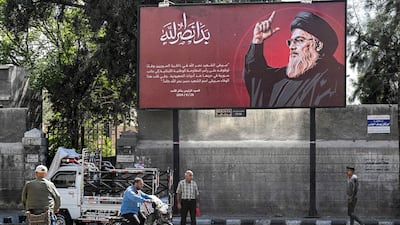International sanctions have increased significantly as organisations and western nations try to tackle global crises, including the war in Gaza, a report has found.
The UN, US, EU and UK are behind many of the sanctions in 2024 with Middle East nations and groups often the target, according to study by Lexis Nexis Risk Solutions.
The sanctions tide, highlighted by a 13 per cent year-on-year increase in net global designations, is not over, the report said.
It also found third country evasion tactics – where networks and people facilitate prohibited exports or imports to a sanctioned state – were a growing issue.
The report, called Taking the Pulse of Major Sanctions Lists, said sanctions continue to be an important tool for global diplomacy.
“The earlier 'storm' of sanctions activity has settled into a new level of normal that is expected to continue through the end of 2024,” the report said.
“The renewed political leadership [in the EU and UK] and the US presidential election will no doubt impact sanctions going forward.”
The US Treasury Department’s Office of Foreign Assets Control (Ofac) is driving the sanctions agenda. It was responsible for 67 per cent of all designations made in the first six months of 2024.
Terrorism and Russia-related issues were each involved in 28 per cent of Ofac cases. Iranians, Hamas and Hezbollah leaders and Israeli West Bank settlers were also targets.
In the Middle East, while sanctions continue to be imposed in relation to Hamas, its supporters, and proxy groups, there were new sanctions against Israeli settlers in the West Bank.
“The situation in the Middle East is a clear foreign policy concern, which translated into significant sanctions actions,” the report said.
“Policy objectives were twofold: disrupting operating capabilities of Hamas, Hezbollah and other terrorist groups operating in the region, and implementing a new set of designations [by the US, EU and Ofac] to address violent actions by extremist Israeli settlers in the West Bank.”
EU sanctions mentioned in the report include Iran’s support for Russia and Syrian business figures who have provided financial support to the Syrian government.
The report provides insights into the scale, speed, and trends in sanctions activity from regulators.


